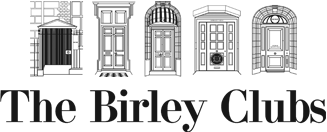Introducing Project Shakti: Championing Diversity, Equity and Inclusion
The pandemic and society’s persistent structural inequalities have increasingly shone a spotlight on the disparities in serving the needs of ‘hard to reach’ communities. According to Cindy Juntunen, PHD, fellow at the American Psychological Association’s Task, progress has often felt like an uphill battle for this group and more targeted outreach efforts are needed to support underserved communities. The big question, however, is how do we do so?
With a keen interest in targeting ‘hard to reach’ societal groups – with a particular focus on those that champion diversity, equity and inclusion – Unilever, BopInc and Roberts Group Consulting (RGC) set out to create a digital learning programme that would develop the capabilities and skills of female micro entrepreneurs (also known as ‘Shakti entrepreneurs’) in rural Ethiopia and Nigeria. Our end goal was to build a scalable model which provided Shakti entrepreneurs with the relevant skillsets, empowering them to better run their own businesses, and thus, improving their earnings and livelihoods. With over 11,000 Shakti entrepreneurs having benefitted from our programme to date, our experience and findings highlight how an effective digital capability programme can help scale impact for social distribution in ‘hard to reach’ communities.
1. Leveraging Existing Networks and Resources
Turning an initial project obstacle into an asset was integral to the project’s success. Being based in rural areas of Ethiopia and Nigeria, the Shakti entrepreneurs had limited access to the internet, digital tools and to the wider Unilever sales and supply chain ecosystem. Prima facie, the task at hand seemed extremely challenging given Unilever’s business model which relied heavily on a centralised distribution system from its regional headquarters.
However, this also presented an opportunity to think outside the box. Through our project diagnostic, Shakti entrepreneurs were discovered to be well supported by a Unilever local Rural Sales Promoter (RSP). RSPs operated from a local Unilever distribution centre, each serving about 25 Shakti entrepreneurs whom they met weekly to provide product stocks and ad hoc support.
Rather than re-invent the wheel, the team spurred the creation of a decentralised Super User model where RSPs were onboarded and trained prior to leading the training for Shakti entrepreneurs using their existing networks and meeting platforms. Decentralisation not only eliminated the need to revamp an entire system, but leveraged existing strong relationships, moving the project forward swiftly. Costs were also significantly reduced making the model both financially viable and scalable.
2. Adopting the Value of Proven Fit for Purpose Methodologies
With a feasible distribution network in place, the next step was critical – defining training elements and its implementation. With over 5 years of experience in delivering training programmes that accelerated transformation in the world’s largest leading organisations, RGC worked closely with Unilever and BopInc to conduct virtual workshops which were targeted at understanding the profiles of the RSPs and Shakti entrepreneurs. The team also created a repository of skill areas as well as training materials that would be most beneficial for the purposes of the project.
Building on RGC’s long-standing methodology to drive intended project outcomes, the team developed a people-centric training approach for deployment. This involved enabling RSPs to deliver training and coaching during their weekly visits with the Shakti entrepreneurs, coupled with self-led learning at home. The programme included video lessons delivered by RSPs via the RSP app which was accessed through RSP’s Unilever-issued smartphone, RSP coaching and a print workbook. Shakti entrepreneurs completed specific bite sized modules each time they met with their RSP. At the end of the 10-week programme, Shakti entrepreneurs also received a certificate of completion lending recognition to their achievements.
Tapping on existing resources and standardising key elements of the training structure, content as well as delivery methods using defined methodologies through digital channels were critical in replicating the programme for RSPs serving rural areas, increasing the project’s reach rapidly.

Precision in project delivery. Roberts Group Consulting has seasoned management experts for projects of all sizes.
3. Effecting and Sustaining Change through a People-Centric Approach
A significant building block in achieving social outcomes is the ability to inspire user adoption, which eventually drives successful programme outcomes in the long run. Demonstrating commitment to the programme was key on both the RSPs and Shakti entrepreneurs’ part.
To achieve this, the team aligned on the communications plan and framework, ensuring all stakeholders felt supported every step of the way. The team launched a communication campaign to the RSP group helping them understand more about the programme, the benefits to them as individuals, Shakti entrepreneurs and requirements from them. This helped build their intrinsic motivation and enabled them to expound the project benefits to the Shakti entrepreneurs convincingly. This in turn, inspired the Shakti entrepreneurs to embrace the programme given the expected benefits. Positive reinforcement messages were also strategically sent to groups to keep spirits high. The team’s construction of the communications playbook streamlined the communications approach significantly which enabled wide-scale adoption of the training.
Closing Thoughts: Unlocking the Social Benefits of Replicable Digital Capability Programmes
Overall, with a programme completion rate of 95% and 97% in Ethiopia and Nigeria respectively, the project invigorated the confidence and capabilities of the Shakti entrepreneurs. With enhanced skills and entrepreneurial mindsets, the Shakti entrepreneurs increased their sales network and products sold, which significantly improved their earnings and livelihoods. The project was also awarded the Brandon Hall HCM Excellence Gold Award for Best Corporate Outreach to Promote Diversity, Equity & Inclusion in Communities.
Over the next decade, we will see an increasing need for scalable social programmes aimed at enhancing societal welfare for underserved communities. By leveraging existing relationships, resources, proven methodologies and developing an effective engagement strategy, scalable upskilling programmes can drive even more rapid value to improve the lives of the most vulnerable and ‘hard to reach’ groups in society.















































